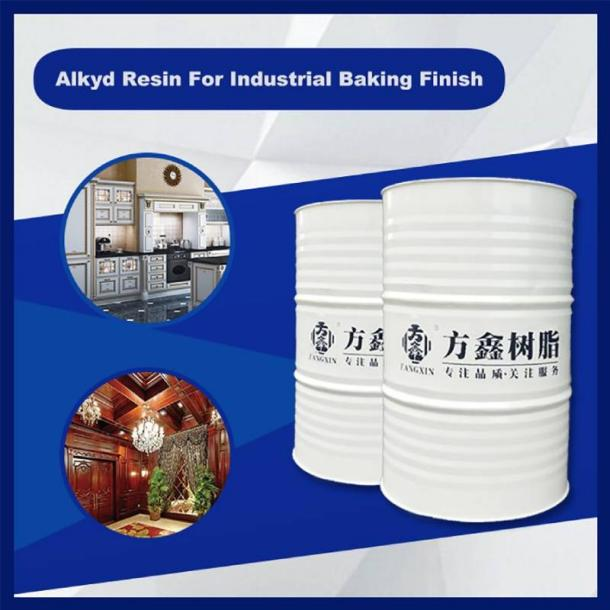A Weather-Resistant Choice for Outdoor Wood: Anti-Aging Applications of Alkyd Resins in Solid Wood Furniture

Outdoor solid wood furniture, with its natural texture and warm aesthetics, serves as a bridge between living spaces and nature—whether on a garden patio, balcony, or poolside. However, exposure to relentless sunlight, rain, humidity, and temperature fluctuations poses severe threats: unprotected wood can crack, warp, fade, or rot within just a few seasons. In this context, weather-resistant alkyd resins have emerged as a reliable solution, offering robust anti-aging protection while preserving the wood’s inherent beauty. This article explores how alkyd resins enhance the durability of outdoor solid wood furniture and their practical applications in combating environmental aging.
The Aging Challenges of Outdoor Solid Wood Furniture
Outdoor wood faces a triple assault from nature that accelerates aging:
· UV Radiation: Sunlight’s ultraviolet rays break down wood’s cellulose and lignin, causing surface degradation, discoloration, and loss of structural integrity. Over time, once-vibrant teak or cedar furniture can turn gray and brittle.
· Moisture and Humidity: Rain, dew, and high humidity penetrate wood pores, leading to swelling, warping, or mold growth. In freeze-thaw cycles, trapped moisture expands, creating cracks that deepen with each season.
· Biological Threats: Fungi, termites, and wood-boring insects thrive in damp, unprotected wood, feeding on organic components and reducing furniture to a fragile shell.
Traditional finishes like oil-based stains or varnishes often fail to withstand these challenges long-term, requiring frequent reapplication. Weather-resistant alkyd resins, however, address these issues through their unique chemical properties and film-forming capabilities.
How Weather-Resistant Alkyd Resins Combat Aging
Alkyd resins are polyester-based polymers modified with fatty acids, and modern formulations enhance their weather resistance through strategic tweaks—such as adding UV stabilizers, mildewcides, or cross-linking agents. Their anti-aging mechanisms include:
UV Barrier Formation
Weather-resistant alkyd resins form a tough, flexible film on the wood surface that acts as a physical barrier against UV rays. Unlike some water-based finishes that may degrade under sunlight, alkyd resins’ polymer structure resists photo-oxidation. When blended with UV absorbers (e.g., benzophenones), they absorb harmful radiation and dissipate it as heat, preventing it from reaching the wood’s cellular structure. This minimizes discoloration and slows down surface degradation.
Moisture Resistance and Breathability
A key advantage of alkyd resins is their ability to repel water while allowing wood to “breathe.” The resin film seals wood pores enough to block liquid water penetration but permits the slow release of trapped moisture vapor. This balance prevents swelling and warping caused by excess moisture while avoiding the “trapped humidity” issues that plague impermeable finishes like epoxy. For dense woods such as teak, this breathability preserves the wood’s natural oils, which contribute to its own rot resistance.
Flexibility and Adhesion
Outdoor wood expands and contracts with temperature changes. Weather-resistant alkyd resins maintain flexibility even in extreme conditions, stretching and shrinking with the wood rather than cracking or peeling. Their strong adhesion to wood fibers ensures the film stays intact, preventing moisture from seeping beneath the finish—a common failure point for less durable coatings.
Biological Protection
Advanced alkyd formulations integrate mildewcides and insect repellents (e.g., zinc pyrithione) into the resin matrix. These additives leach slowly over time, creating a protective zone that deters mold, mildew, and insects without harming the wood’s natural properties. This dual action—physical barrier plus chemical defense—significantly extends the furniture’s lifespan.
Practical Applications in Outdoor Solid Wood Furniture
Weather-resistant alkyd resins are versatile enough to adapt to different wood types and furniture styles, with applications ranging from:
· Teak and Mahogany Furniture: These premium woods require finishes that enhance their natural grain while protecting against saltwater (for coastal areas) or intense sunlight. Alkyd resins penetrate deep into teak’s dense fibers, preserving its golden hue and resisting graying caused by UV exposure.
· Cedar and Pine Decks/Chairs: Softwoods like cedar are prone to warping, but alkyd resins form a hard, durable film that locks in moisture stability. For pine, which fades quickly, tinted alkyd formulations add color that withstands fading, reducing the need for annual staining.
· Rustic or Carved Pieces: The low viscosity of some alkyd resins allows them to seep into intricate carvings or joints, ensuring complete coverage. Their flexibility prevents cracking in detailed areas where wood movement is most pronounced.
In real-world use, outdoor furniture treated with weather-resistant alkyd resins typically retains its appearance and structural integrity for 5–8 years, compared to 2–3 years with conventional finishes. This longevity reduces maintenance efforts owners can enjoy their furniture without yearly sanding and reapplication.
Advantages Over Alternatives
When compared to other outdoor wood finishes, weather-resistant alkyd resins offer distinct benefits:
· Better than Oil-Based Stains: While oils penetrate wood well, they lack alkyds’ UV resistance and tend to fade or wash away quickly in rain. Alkyds provide longer-lasting protection with fewer touch-ups.
· More Flexible than Varnishes: Traditional varnishes form a hard, brittle film that cracks under wood movement. Alkyd resins’ flexibility makes them ideal for furniture that experiences frequent temperature or humidity shifts.
· Eco-Friendlier than Solvent-Based Lacquers: Modern alkyd resins are often low-VOC (volatile organic compound) or water-reducible, reducing harmful emissions while maintaining performance—a critical factor for environmentally conscious consumers.
Conclusion
Outdoor solid wood furniture deserves protection that matches its beauty and functionality. Weather-resistant alkyd resins rise to this challenge, offering a harmonious blend of UV protection, moisture resistance, flexibility, and biological defense. By forming a durable yet breathable barrier, they slow aging, reduce maintenance, and extend the lifespan of outdoor pieces from a cozy patio chair to a grand dining set. For homeowners and manufacturers seeking to preserve wood’s natural charm while combating the elements, alkyd resins are a proven, practical choice that ensures outdoor furniture remains a source of enjoyment for years to come.
Comments
Post a Comment